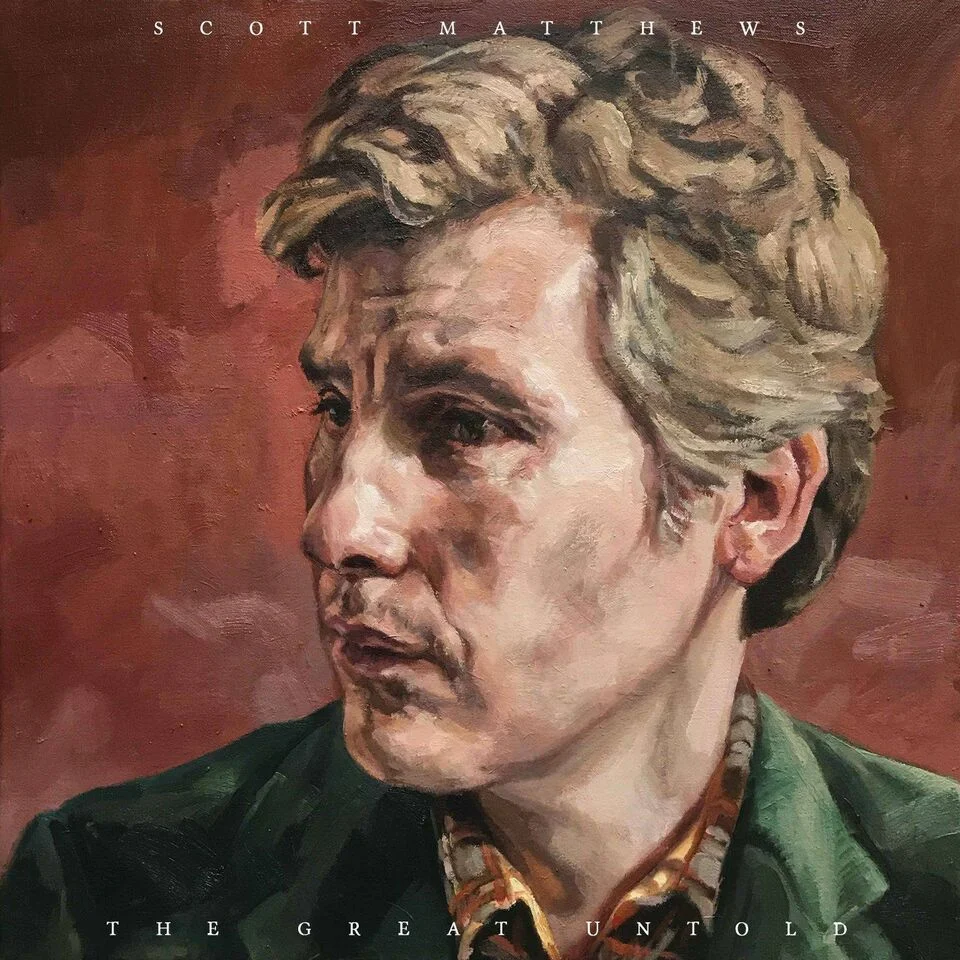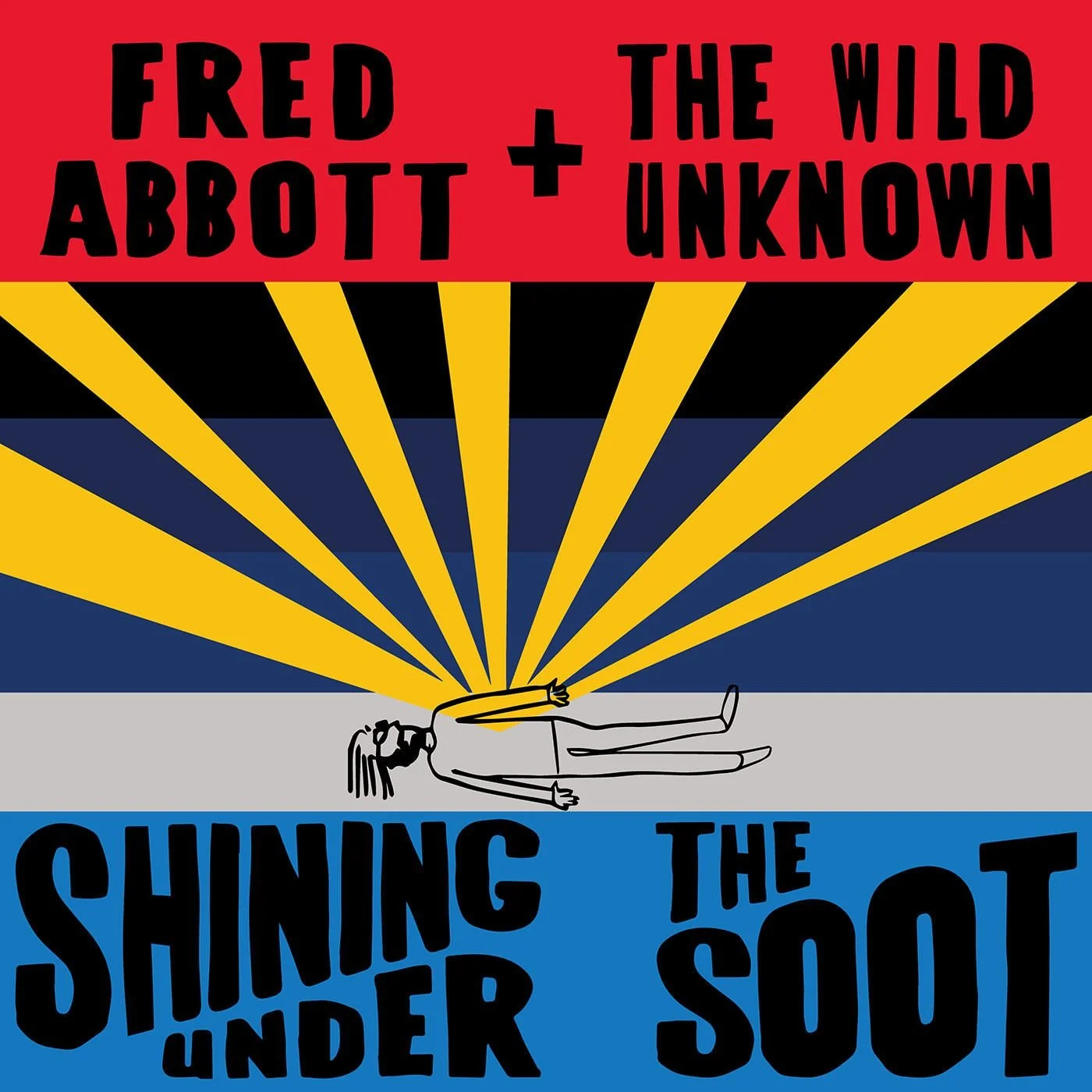Scott Matthews - Restless Lullabies (Album Review)
For bands and singer-songwriters, 2020 was hardly the best year to release a new album. And let’s face it, 2021 wasn’t much better. The only hope for artists with new music was that they could somehow connect online, as reaching fans via physical touring was out of the question. As a result, countless records were overlooked, under-noticed and sailed away, unloved. Scott Matthews released his eighth album, the sonically ambitious New Skin, in December 2020, at the start of a winter most of us are keen to forget. Three years later, Restless Lullabies sees the same set of songs reborn, and, in an effort to ensure that each are properly heard, they have been stripped of skin, flesh and - in some cases - their very bones, in his most exposed and intimate record to date.
This doesn’t take anything away from the achievements of New Skin, which is bold and enchanting in completely different ways, drenched in electronica and fever-dream atmospherics. Restless Lullabies is altogether more stark, with the sparest of acoustic accompaniments allowing Matthews’ arresting vocal simply to soar. Often compared to Thom Yorke and Jeff Buckley, Scott’s devastating falsetto may lack the chaos of either man but trumps both for focus and restraint. For some this might mean less exciting; for me it just means better. So lightly adorned and so inescapably central is Scott’s voice here, listening to this record is like mainlining pure emotion.
If rebirth is the brief, then it's fitting that ‘New Skin’ opens the record with a vocal creeping in unsteadily against delicate acoustic guitar, before the track blossoms into a murmuration-like climax. Its themes of unchartered territory set the scene. By contrast, ‘Wait In The Car’ is more static and musically grounded, its roomy piano affording Matthews’ lower register a turn as it reveals a bittersweet carpe diem. In any gear, it’s a voice that can stir or still the listener by turns.
Throughout the record, it's fascinating to hear how Matthews uses a minimal toolkit to reflect a song’s essence: a fingerpicked ukulele is the teeming rain of ‘Morning’, while ‘The Tide’ shimmers with spare percussion as its waters undulate with flushed chords and gently heaving backing vocals. Later, the reverb is set to ‘small, dark church’ for the haunting a cappella of ‘Intruders On Earth’, which evokes the surreal silence of a night spent snow-walking. It’s arguably the album’s most powerful piece: no tools required, then.
If you’re looking for anything resembling a hit then it’s probably the wonderful ‘My Selfless Moon’ or the hypnotic yet singalong ‘Autopilot’, but I don’t think takeaway tracks are the point. Why run the bath if you’re only going to dip a toe in? Restless Lullabies is really a record in which to immerse yourself end to end. It’s one of those sit-in-the-dark LPs. Find yourself an empty room and let this record fill it with its satisfying hollows and deep, melancholic beauty.
https://www.instagram.com/scottmatthewsofficial/
Review by Rich Barnard
For bands and singer-songwriters, 2020 was hardly the best year to release a new album. And let’s face it, 2021 wasn’t much better. The only hope for artists with new music was that they could somehow connect online, as reaching fans via physical touring was out of the question. As a result, countless records were overlooked, under-noticed and sailed away, unloved. Scott Matthews released his eighth album, the sonically ambitious New Skin, in December 2020, at the start of a winter most of us are keen to forget. Three years later, Restless Lullabies sees the same set of songs reborn, and, in an effort to ensure that each are properly heard, they have been stripped of skin, flesh and - in some cases - their very bones, in his most exposed and intimate record to date.
Scott Matthews is one of those artists I just can’t imagine not being there. His solemn, haunting vocal style has been winning over fans ever since his acclaimed debut, Passing Stranger, was released in 2006. Back then, amid the acoustic singer-songwriter boom of the 2000s, there emerged a handful of acts that may no longer make huge commercial waves but still continue to make exquisite, interesting records. New releases from the likes of Polly Paulusma, Tom Baxter and Tom McRae - all contemporaries of Matthews - are a comforting reminder that great songwriters can and do endure, regardless of time or fashion. A new album from Scott Matthews (or any of the above) is the sort of thing that, even before I hear it, helps to restore my ailing faith in humanity.
Jaywalkers first came to prominence via an appearance in the finals of the BBC Young Folk Awards in 2008. In the years since, the trio has built a solid following, effortlessly merging folk, country and bluegrass into their particular brand of English Americana via a combination of impressive musicianship, impeccable harmonies and a knack for identifying a good tune. Their latest album ‘Move On’, sensitively produced by Joe Rusby, is an impressive addition to their discography.
One of the positive aspects of running Red Guitar Music is that you encounter all manner of different musical genres that you wouldn’t necessarily find on your own. The RGM Inbox is positively overflowing with the good, the bad and, yes, the ugly (although something we find unlistenable is probably the best thing in the world to someone). One example that falls squarely in the good category of pleasant surprises is The Happy Couple, discovered on a recent visit to London’s Green Note, where the duo opened for Dimple Discs labelmate Kelsey Michael.
To quote John Surge, “These five songs represent a real cross-section of the music we make”. John is referencing a new EP aptly titled, ‘Maybe You Don’t Know Me’. The ‘Almost Time’ album from last year was well received, but Surge still had a host of material that wasn’t quite right for that record but worked well in his live set. A live set that had gotten John noticed on the LA country scene in the first place. Surge re-connected with highly regarded Texas producer Tommy Detamore {Doug Sahm, Jim Lauderdale, Sunny Sweeney, Jesse Daniel} and reenlisted many of the ‘Almost Time’ crew including his right-hand Haymaker guitarist Randy Volin, plus Brennen Leigh on harmony vocals, Brad Fordham (Dave Alvin/Hayes Carll) on bass, Tom Lewis (Junior Brown/Raul Malo) on drums and Floyd Domino (Asleep at the Wheel, Merle Haggard) on keyboards.
A new name to me, but based on the new EP, ‘Tigers in Your Backyard (Nocturnal Edition)’, Molly Murphy is one to watch. Initially, Molly embarked on a promising college career as a double Film and English Major pursuing a career in screenwriting but left all that behind to form a band (as you do). Murphy’s latest release finds the singer-songwriter adding a modern sheen to her traditional Celtic roots.
Sons Of Liberty are a bunch of old-school rockers who, somewhat surprisingly, hail from Bristol in the UK but are steeped in the harder-edged Southern rock rooted in the Southern states of the USA that came to prominence in the late 70s. The quintet made their recording debut in 2018 with a brace of EPs, ‘...Shinola’ followed by ‘Aged in Oak’. 'The Detail Is In The Devil' is their third full-length release and first with new singer Russ Grimmett.
Status Quo might not instantly spring to mind as an artist you would expect to embark on a series of archive releases, but if Vol.1 – Live In Amsterdam is any guide to the quality of this new undertaking, fans are in for a treat. The band has joined the likes of Bob Dylan and Neil Young in delving deep into the vaults to unearth, spruce up, and release a live show recorded on October 19th 2010, at the Heineken Hall in Amsterdam for a limited numbered edition CD and LP release. This makes perfect sense; Status Quo live, there are few better, so what more do you need to know?
Fred Abbott may be better known to you as the guitarist from the much-loved and hard-to-pigeonhole band Noah & The Whale. A popular live draw, their refreshing, inventive approach to songwriting and record-making set them apart from the crowd but ultimately the band split in 2015, with four albums to their name. Abbott’s solo debut, Serious Poke, appeared shortly after, sporting a more straightforward, guitar-centred sound. Eight years later - and having gained broad experience as a session musician and producer in between - Abbott has returned with Shining Under The Soot, a mature and beautifully crafted follow-up, brimming with energy and heart.
When you think of progressive rock/metal concept albums, one name springs instantly to mind, Arjen Lucassen. It could have all been so different for Lucassen, as his 1993 solo album, released under the Anthony moniker, ‘Pools Of Sorrow, Waves Of Joy’ was met with indifference by the record-buying public (finding a copy thirty years later will be a long and expensive search). Seemingly undaunted and already a hard rock veteran after stints in Bodine and Vengeance, Lucassen pushed on regardless, his determination resulting in a slew of projects that played a crucial role in revitalising the progressive rock/metal scene via releases under the Ayreon, Ambeon, Guilt Machine and Star One banners while still finding time for guest appearances and contributions to albums by leading lights of the scene such as Within Temptation and Avantasia. For this project, Lucassen has put his little black book of names to one side (Lucassen has enlisted many performers on his star-studded albums, especially singers) and settled on a band project, it’s still essentially a concept record in the Lucassen tradition, but he looks to be out to have a little fun, and the results are glorious.
Ledfoot aka Tim Scott McConnell and Ronni Le Tekrø seem, at first look, like an odd pair. Tim, born in Florida, has been based in Norway for many years, adopting the Ledfoot moniker in 2007 after a string of solo releases on major labels and as frontman of The Havalinas. Ronni Le Tekrø is best known as the guitarist in TNT, Norwegian rock royalty, enjoying considerable international success since their formation in 1982. The Norwegian connection would seem to be the cement here, and ‘Limited Edition Lava Lamp’ is their second record as a duo.
For bands and singer-songwriters, 2020 was hardly the best year to release a new album. And let’s face it, 2021 wasn’t much better. The only hope for artists with new music was that they could somehow connect online, as reaching fans via physical touring was out of the question. As a result, countless records were overlooked, under-noticed and sailed away, unloved. Scott Matthews released his eighth album, the sonically ambitious New Skin, in December 2020, at the start of a winter most of us are keen to forget. Three years later, Restless Lullabies sees the same set of songs reborn, and, in an effort to ensure that each are properly heard, they have been stripped of skin, flesh and - in some cases - their very bones, in his most exposed and intimate record to date.
From his self-titled, triple platinum-selling debut album in 1987 to ‘Limitless’ in 2020, Richard Marx has had an unerring knack for a melody (not to mention a pretty wonderful voice). Marx's songwriting skills have enabled him to stay relevant throughout his nearly forty-year career. His sound has evolved over time, with the punchy guitars of the late 80s replaced by a smoother, more R&B/pop sound tailored to radio and streaming services. Along the way, his song craft has been in high demand, co-writing and/or contributing songs to a startling array of artists from Kenny Rogers to Keith Urban via NSYNC, Luther Vandross and Vixen. An impressive CV, but where does that chameleon-like ability to pen hit songs come from? How does he do it? Hopefully, ‘Songwriter’ might give us a bit of a clue as we take a journey through twenty tracks encompassing four genres; pop, rock, country and ballads.
In 2003 fresh from the success of ‘Heavy Traffic’, which found a rejuvenated Quo recovering somewhat from a run of uninspired releases, things were seemingly on an upward curve. So, what do they do? They release another covers album…honestly guys, really? There’s been a trend in recent years, which isn’t particularly welcome, of bands rerecording their own songs or putting out cover albums of their “favourite” songs (usually the same “favourite” songs of every other band on the planet). The Quo did both on one album!
















As a venue, The Union Chapel rises serenely above the sticky floors of its close neighbours The Hope & Anchor and The Garage. It balances its roles as fully functioning church and celebrated concert hall with ease and, if you’re after a sense of reverence and ceremony, there aren’t many London venues that can match it. On this balmy May evening, Scott Matthews' disciples gather respectfully along the ridiculously up-at-heel Compton Terrace long before doors open and I have the distinct impression that I am in for one of the more civilised gig-going experiences of my modest career. I install myself in pew 77 with a Coke (no alcohol allowed in the church itself) and begin to contemplate my manifold sins.